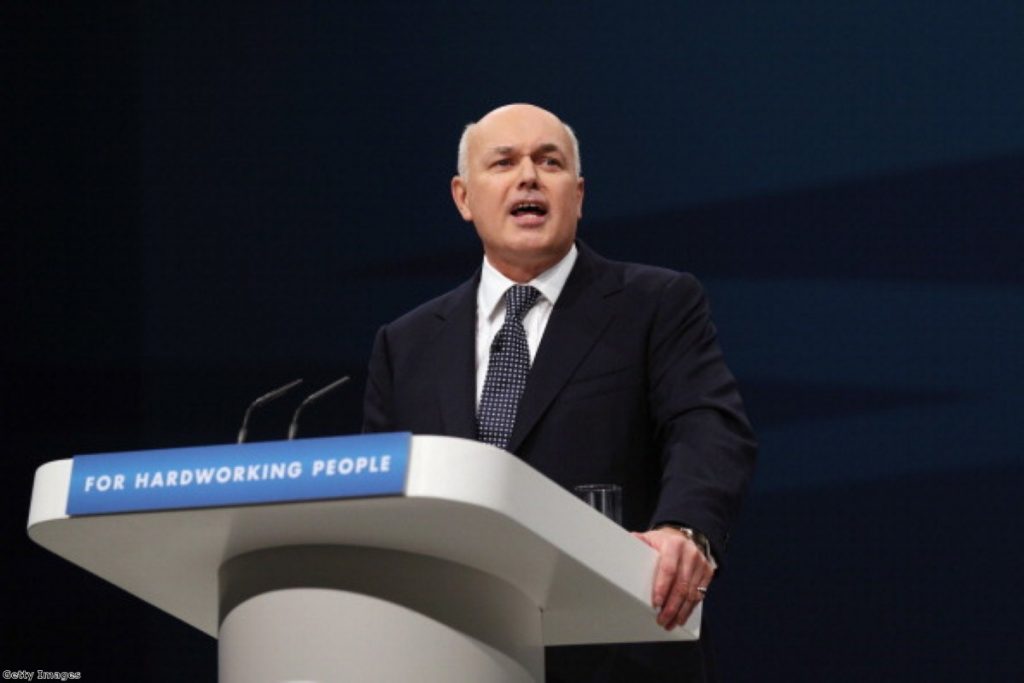Why ‘Help to Work’ won’t help jobless back to work
The Help to Work scheme will be a failure. We can predict this because the government have already tried it and found it to be so.
The Department for Work and Pensions (DWP) quietly published a large-scale trial of the scheme last year. It found next to no impact from the draconian measures coming into force nationally this week.
During the trial, people out of work for more than two years were forced into long periods of unpaid voluntary work, or made to attend job centres daily.
Those refusing to clean graveyards, or slog to their local job centre every day, were stripped of their benefits for four weeks at first, then up to three months if they persisted.


Iain Duncan Smith believes these harsh measures forced those treating unemployment as a 'lifestyle choice' back into work.
But this is just a belief. He has no convincing evidence to support it.
His department's own study found the measures had almost no impact on long-term employment. After almost two years, just 18% of those forced to take part in unpaid voluntary work had moved back into employment. This is exactly the same percentage as those who were kept outside of the scheme.
Those made to attend their local job centre every day did little better, with just 19% moving into employment after 91 weeks.
And this all come sat a price. A spokesperson for the DWP told me today that they will pay the travel costs of all those forced to attend job centres every day. A substantial sum, even before you consider the cost of hiring extra job centre staff.
Compare the results of this scheme to the previous government's Future Jobs Fund (FJF), which Duncan Smith dismissed as a waste of money.
A 2012 DWP study found that participants in the Future Jobs Fund were 27% more likely to be in employment after two years than those outside the scheme. The scheme was also found to have increased tax receipts and reduced the government's benefits bill.
Yet the FJF was dismissed by David Cameron as "one of the most ineffective job schemes there's been" which was "expensive, badly targeted and did not work". We can only imagine why he remains committed to a scheme which the DWP's own studies show is less effective.
Duncan Smith's commitment to the Help to Work scheme should come as no surprise. As we have seen with Universal Credit, Duncan Smith's faith-based approach to politics means that he sticks to policies long after they are proven to be unworkable.
But there is something far more unsavoury about the government's commitment to Help To Work.
Duncan Smith likes to pose as a man with a missionary drive to help people back into the work. David Cameron has also posed as a man of faith with a 'moral mission' to reduce benefits.
But their decision to push ahead with Help to Work, is not just about blind faith. It is also a sign that their main aim is not to help people back into work, but to help themselves back into office.
Opinion polls have shown consistent support for any measure which appears to be 'getting tough' on the jobless. With the European elections just around the corner and Ukip surging, the decision to implement these proposals now must surely be a wholly political decision.
The true effect of this scheme will not be felt at the polls, but on those thousands of people who continue to be abandoned to unemployment.
And for those people left in poverty and stripped of their welfare, the knowledge that Duncan Smith 'believes' he is doing something to help them will come as very small comfort indeed.









